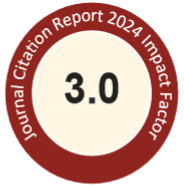Abstract
The antioxidative activity of intracellular extracts of yogurt bacteria was measured based on the inhibition of lipid peroxidation of two model systems, namely a free fatty acid (linoleic acid) system and a biological lipid (plasma lipid) system. The inhibitory rate on linoleic acid peroxidation was 61 and 57% for Streptococcus salivarius ssp. thermophilus ATCC 19258 and Lactobacillus delbrueckii ssp. bulgaricus ATCC 11842, respectively. The inhibitory rate on plasma lipid peroxidation was 57 and 41% for S. salivarius ssp. thermophilus ATCC 19258 and L. delbrueckii ssp. bulgaricus ATCC 11842, respectively. Results from both systems demonstrated that these two yogurt strains were potentially highly antioxidative. Further experiments were done on Intestine 407 cells to determine the antioxidative effects of yogurt bacteria on reducing oxidative damage of oxidant H2O2. Intracellular extracts of yogurt bacteria reduced the genotoxicity of H2O2. Although L. delbrueckii ssp. bulgaricus ATCC 11842 had only minor effects on reducing DNA damage, S. salivarius ssp. thermophilus ATCC 19258 showed excellent potential for protecting the Intestine 407 cells from the genotoxicity of oxidant H2O2. Both yogurt bacteria demonstrated high cytotoxicity inhibitory ability for oxidant H2O2. The cytotoxicity inhibition rate was 71 and 48% for S. salivarius ssp. thermophilus ATCC 19258 and L. delbrueckii ssp. bulgaricus ATCC 11842, respectively.
Recommended Citation
Ou, C.-C.; Ko, J.-L.; and Lin, M.-Y.
(2006)
"Antioxidative effects of intracellular extracts of yogurt bacteria on lipid peroxidation and intestine 407 cells,"
Journal of Food and Drug Analysis: Vol. 14
:
Iss.
3
, Article 10.
Available at: https://doi.org/10.38212/2224-6614.2474

